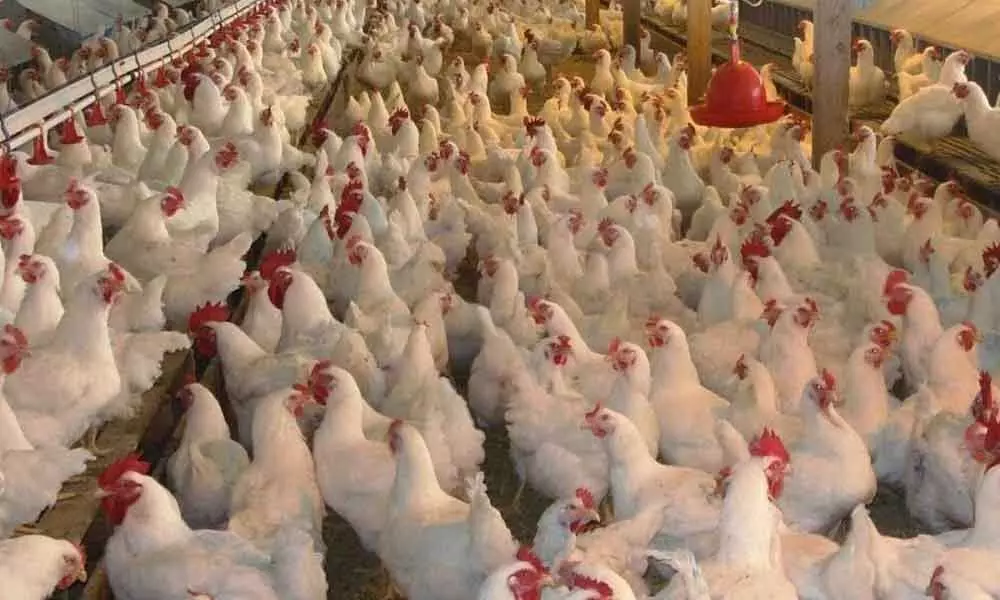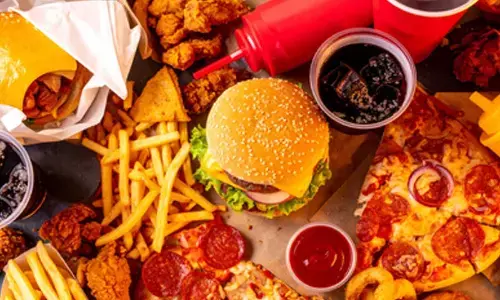Healthy poultry: Dos and don'ts of the growing industry

The poultry sector in India was valued at an estimated Rs 80,000 crore in 2015-16.
The poultry sector in India was valued at an estimated Rs 80,000 crore in 2015-16. Thanks to increasing income and changing food habits, the demand for poultry meat as well as eggs is expected to grow steadily.
The poultry meat production in the country stood at around 3.46 million tons in 2016-17, up from 3.26 million tonnes during the previous year. Similarly, the egg production also grew by around 6% during the same period. Notably, more than 80 per cent of India's poultry output is produced by organised commercial farms, while the remaining 20% comes from the unorganised sector often referred to as the backyard industry.
The growing consumption and production of poultry on commercial scale elicit a series of health and environmental concerns. Among them are concerns over bacterial disease as well as the disposal of infected birds. Prevention of diseases and ensuring healthy growth of chicken also remain significant concerns before farmers.
Bacterial disease causes multi-billion-dollar economic losses for the livestock industry. It is estimated that Campylobacter and Salmonella infections that are rampant in poultry together account for 9 in 10 reported cases of bacteria-related food poisonings globally.
There exist more than 2,000 species of bacteria belonging to Salmonella genus, with almost all of them being potential pathogens of poultry. In fact, a study conducted on eggs in several retail outlets in India found that large amounts of salmonella were present both on the shell and inside the egg.
Coliform infections or diseases resulting from Escherichia coli bacteria are another significant health concern recognised as a major cause of morbidity and mortality in chickens. Often, mass culling is necessitated to curb such infections causing huge losses to the industry.
The disposal of the culled birds which is often done through mass burials further leads to concerns of environmental degradation as water bodies and soil stands to be polluted.
To treat such diseases, poultry farmers are forced to use significant amounts of anti-microbials and other veterinary drugs and feed additives which together have negative implications on human and environmental health.
Estimates suggest that 70% of all antibiotics used are used in animal farming, while only 30% are used directly in humans.
In the absence of effective and safe alternatives that can prevent the disease, antibiotics are used to treat diseases and prevent disease among chicken. The entry of antibiotics in our food chain has far reaching consequences on human and environmental health.
Taking note of the global threat of antibiotic resistance, the non-therapeutic use of antibiotics in animal production has been banned in many countries. Sweden was the first country to ban the use of antimicrobials for non-therapeutic uses in the late 1980s.
Denmark, the Netherlands, United Kingdom and other European Union countries have also followed suit. Recently, the Indian government has also banned the manufacture, sale and distribution of antibiotic Colistin (often considered a 'last hope' antibiotic) for poultry and animal feed supplements to preserve its efficacy in humans.
However, it is important to underline that banning the non-therapeutic use of antibiotics is not enough. We also need to devise solutions to help farmers grow healthy poultry and prevent bacterial infections through natural mechanisms.
Interestingly, using bacteriophage-based preventive solutions is emerging as a sustainable and healthy alternative for disease prevention in poultry. Bacteriophages or simply known as 'phages' are microorganisms that are a natural element of our environment and exist everywhere around us including in the gut.
Phages eliminate or devour their selected bacteria in a natural way without interacting with animal or human cells. This makes them absolutely safe for poultry and human beings.
Poland-based biotechnology company Proteon Pharmaceuticals has pioneered a revolutionary approach to use phages in a sustainable and controlled way to eliminate pathogenic bacteria without causing any harm to the microbiome or gut flora of the birds.
By promoting healthy growth of birds, this significantly reduces the need for use of antibiotics. They help to reduce pathogenic bacteria without side effects, without leaving any residue and without creating antibiotic resistant strains of bacteria.
Creating and popularising such sustainable solutions is key to the overall health of poultry and human beings. It is also important that adequate awareness is raised among farmers about following correct disease management and control practices and end reckless use of antimicrobials.
(The author is Managing Director - Vetphage Pharmaceuticals Pvt. Ltd.)















